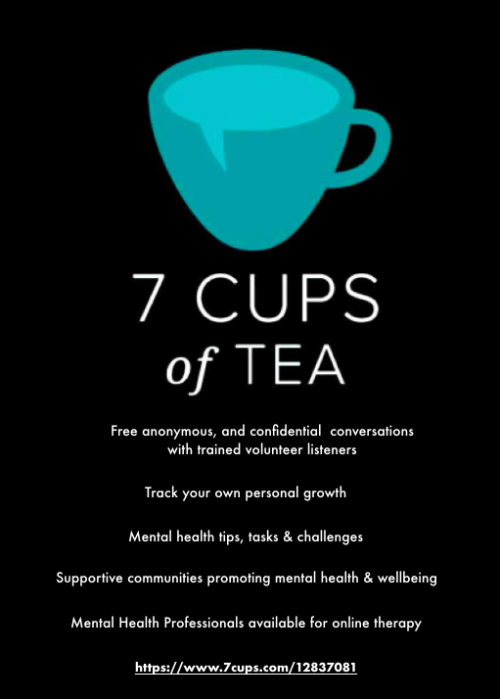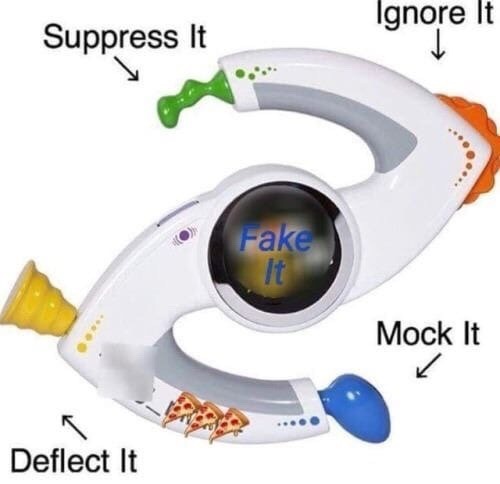#substance abuse
i have hope. this will be my last. i have hope that i have the fight in me. i have hope that i want this for myself. that i do deserve it. that i am not gone. that i have more to give, to make, to do, to see.
fuck this is gonna be hard. but ive done it before & fuck it was beautiful. it’s gonna suck, like goddami it’s gonna be so rough. but ill climb to the other side so grateful that ive come that far once again.
Mental Health, ADHD, and Drug Abuse
The overlap between substance problems and mental concerns is large
The overlap between substance problems and mental concerns, such as mood and behavior disorders, is large. If you have one, you’re more likely to find yourself with the other also.
For example:
- People with depression or anxiety are roughly twice as likely to have some kind of drug use disorder.
- Research has found that more than 40 percent of people withbipolar disorder will have a substance use disorder during their lives.2
- The converse is also true. Among those who are seeking help for a substance use disorder, as many as 50 to 75 percent will also have anxiety, depression, or some other mental health issue.3
And here’s another common condition that’s also associated with a significantly increased risk of illicit drug use: ADHD. The relationship is quite high, and it begins in adolescence and continues into adulthood.
A 2011 study that followed kids and teens for 10 years found that those who were diagnosed with ADHD were 47 percent more likely to have a substance use disorder later in life than their peers without ADHD.
So which condition causes the other?
This question arises in my psychiatric practice regularly. In all likelihood, some causation is traveling in both directions. Drug use—especially during adolescence—increases the chances of various forms of mental illness. Given that drugs can harm normal brain development, the drug use likely causes mental illness to arise in people who were already vulnerable to developing it. On the other hand, some people with a mental health issue may use drugs to self-medicate symptoms.
In any particular person, discovering which caused which is often impossible. Knowing the order in which these problems became apparent can be informative. But it’s not enough to lead us to state with certainty that one caused the other, because we usually can’t know if the second problem would have arisen anyway.
Reassuring findings about ADHD meds
This leads us to an important question about ADHD that concerns many parents. Few folks say something to the effect of: “Wait … psychiatrists and other doctors are putting kids with ADHD on stimulant drugs, which have enough kick that some people use them recreationally. Isn’t it possible that ADHD medications themselves put kids at higher risk of developing substance problems?
That’s a valid concern, given that nearly 3 million kids and teens were being treated with medication for ADHD in 2007. However, although some might worry that treating ADHD symptoms with psychostimulant medications would result in later illicit drug use, a number of studies over the years have concluded that there seems to be “no compelling evidence that stimulant treatment of children with ADHD leads to an increased risk for substance experimentation, use, dependence, or abuse by adulthood.”
It’s even possible that treating ADHD with medications helps protect kids from later drug use. One 2008 study followed 114 children with ADHD for five years, until they were 16 years old on average. Ninety-four of them had been treated with stimulant medications. The researchers found no increased risk of substance use disorders linked to treatment with stimulant medications. In fact, they found that kids who took these medications were 73 percent less likely to have a substance use disorder.
Thus, although it might make intuitive sense to be concerned that treating ADHD with stimulants is setting the child up for trouble with drugs down the line, research does not bear that out and, in fact, it suggests the opposite.
The best advice for someone with either a substance use problem or mental health disorder is to remain vigilant for the emergence of the other type of problem. Their interrelationship is complex and still being sorted out – and it’s a good idea to tell any doctor who’s treating you if you have either (or both) of these issues.
Post link
MAKING A RELAPSE PREVENTION PLAN

A new study reports that alcohol use disorders (AUD) significantly contribute to disease and death rates in the United States.
More people are using e-cigarettes as an alternative to real cigarettes, but are these unregulated electronic versions worse than the real thing?
http://www.myaddiction.com/videos/smoking/are-e-cigarettes-worse-than-real-ones-video
The final implementation of the Mental Health Parity and Addiction Act, first signed into law five years ago, was released earlier this month.
Bad news for addiction-pronewomen – depression doesn’t decline with age.
The study out of the University of Michigan Health System looked at more than 200 women over a 12-year period. The research shows that unlike alcohol abuse and antisocial behavior, depression does not, by itself, get better over time - it actually gets worse.
http://www.myaddiction.com/news/alcoholism-news/depression-worsens-with-age-in-addicted-women
Craving sugar, or having an addiction is a real issue that many people face. Dr. Michael Roizen talks about 4 different ways to help control sugar cravings.
http://www.myaddiction.com/videos/sugar/4-tips-to-control-sugar-cravings-video
When I first came to sobriety, I was trying to demonstrate my commitment. It wasn’t entirely to recover, but to be able to tell a judge that I’d changed my ways for the better. Part of doing so would be to attend 90 meetings of either Narcotics Anonymous (NA) or Alcoholics Anonymous (AA) over a 90-day period.
http://www.myaddiction.com/lifestyle/drugs/ninety-meetings-in-ninety-days
If you are in treatment for methamphetamine use, do not be surprised if your doctor or nutritionist recommends that you eat more grapes as part of your recovery. Grapes and other colored fruits and veggies contain the compound resveratrol which seems to inhibit the drug’s impact on the brain’s dopamine neurons.
It’s a familiar scenario for most college students: facing “crunch” time during finals, midterms or just a particularly busy week.
Lynda Carter, best known as being Wonder Woman, talks about her past battle with alcoholism and how to was finally able to get help.
Since addiction can manifest in different ways, depending on the individual, it’s helpful for addiction counselors and mental health professionals to have a measurement tool for assessing problem areas.
http://www.myaddiction.com/articles/drugs/what-is-the-addiction-severity-index
Choosing a treatment center for yourself or a loved one can be a daunting experience.
According to a new study from the CDC more children are getting hooked on flavored cigars. The flavors in the cigars make it easier for kids to smoke and mask the harshness of tobacco, which makes them more likely to have a future addiction.
http://www.myaddiction.com/videos/smoking/more-kids-smoking-flavored-cigars-video
A new report published by the Centers for Disease Control and Prevention reveals that youth exposure to alcohol advertisements on national TV programs is at an industry high.
http://www.myaddiction.com/news/alcohol/youth-overexposed-to-tv-alcohol-advertisements
Need to chat?
7 Cups of Tea supports and promotes mental health and wellbeing!
Lots of free resources with great information and supportive focused communities
One of my favourite components is that there’s a personal growth tracker that can help you work towards improved mental, emotional, social and physical health
https://www.7cups.com/12837081
Post link
Don’t you DARE to be okay with losing me

Substance abuse is a serious health issue, which requires immediate attention. It brings a lot of suffering to

Original Quote Rumourtalks
#







